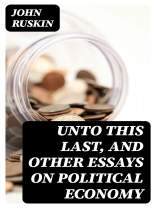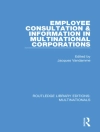In ‘Unto This Last, and Other Essays on Political Economy, ‘ John Ruskin challenges conventional economic theories of the 19th century by interweaving moral philosophy with socio-economic critique. Ruskin adopts a highly eloquent and accessible literary style, blending rhetorical flourishes with poignant observations on wealth, labor, and the moral responsibilities of society. His essays stand as a counterpoint to utilitarian economic practices, presenting a vision where economic principles align with ethical imperatives, thus situating his work within the broader context of the Industrial Revolution and its social repercussions. John Ruskin (1819-1900) was a prominent critic, social thinker, and art theorist whose multifaceted engagement with literature and visual arts profoundly influenced his economic writings. His upbringing amidst the natural beauty of the Lake District and his profound appreciation for craftsmanship inform his arguments against the dehumanization of labor, presenting a philosophy that champions the dignity of work and community welfare. The intellectual milieu of Victorian Britain, characterized by rapid industrialization, undoubtedly shaped his perspectives as he sought to reestablish moral values within economics. This compelling collection is essential reading for those interested in the intersections of economics, ethics, and society. Ruskin’s insights resonate with contemporary debates on capitalism and social justice, making it a crucial text for scholars and general readers alike. By engaging with Ruskin’s thought, readers are invited to reconsider the very foundations of economic systems in light of human dignity and communal health.
เกี่ยวกับผู้แต่ง
John Ruskin (1819–1900) was a prominent Victorian era English critic, thinker, and artist, renowned for his work in social and economic theory, as well as his contributions to literature and art criticism. He was an advocate for the values of craftsmanship and the aesthetics of the natural world, which influenced the Arts and Crafts Movement. Ruskin’s multidisciplinary approach extended to education, and he founded the Drawing School at Oxford in 1871. His influential essays on political economy, ‘Unto This Last, and Other Essays on Political Economy’ (1862), argued for the importance of moral values in economic practices, challenging the principles of laissez-faire capitalism prevalent at the time and advocating for the welfare of workers, a precursor to modern social welfare ideologies. His literary style blended didacticism with eloquent prose that appealed widely to the Victorian readership. Ruskin’s works were a synthesis of art, social critique, and moral philosophy, bridging the gap between aesthetic sensibilities and ethical considerations. He was also notable for his patronage of the Pre-Raphaelite Brotherhood and his cultural commentaries, which made significant contributions to Victorian art and design philosophy.












